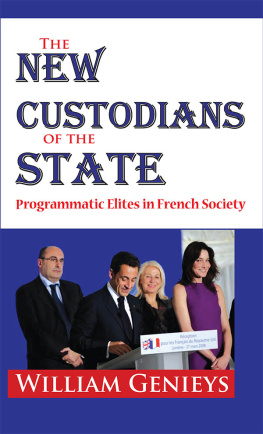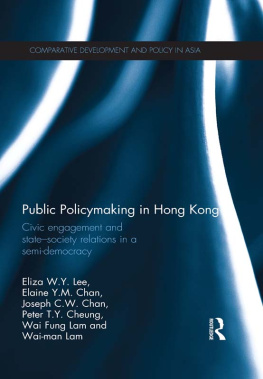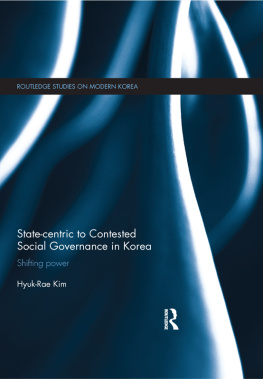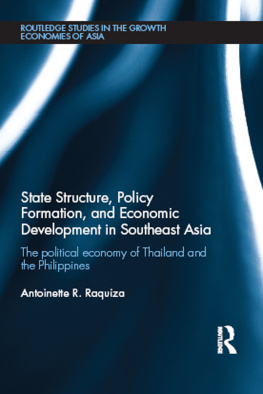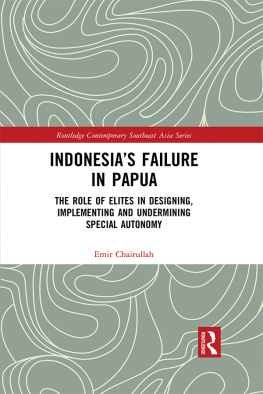THE
NEW
CUSTODIANS
OF THE
STATE
First published 2010 by Transaction Publishers
Published 2017 by Routledge
2 Park Square, Milton Park, Abingdon, Oxon OX14 4RN
711 Third Avenue, New York, NY 10017, USA
Routledge is an imprint of the Taylor & Francis Group, an informa business
Copyright 2010 by Taylor & Francis
All rights reserved. No part of this book may be reprinted or reproduced or utilised in any form or by any electronic, mechanical, or other means, now known or hereafter invented, including photocopying and recording, or in any information storage or retrieval system, without permission in writing from the publishers.
Notice:
Product or corporate names may be trademarks or registered trademarks, and are used only for identification and explanation without intent to infringe.
Library of Congress Catalog Number: 2009041297
Library of Congress Cataloging-in-Publication Data
Genieys, William.
The new custodians of the state: programmatic elites in French society / William Genieys.
p. cm.
Includes bibliographical references and index.
ISBN 978-1-4128-1156-9 (alk. paper)
1. Elite (Social sciences)--France. I. Title.
HN440.E4G46 2010
305.520944--dc22
2009041297
ISBN 13: 978-1-4128-1156-9 (hbk)
ASF | Architecture des Systmes de Forces |
CCPEB | Commission Consultative Permanente des Engins Blinds |
DAT | Direction des armements terrestres |
DGA | Dlgation Gnrale pour lArmement |
DMA | Dlgation interministrielle pour larmement |
DLD | Dossier de lancement dveloppement |
DSP | Direction des Systmes de forces et de la Prospective |
EMAT | Etat-major de larme de terre |
EPC | Engin Principal de Combat |
GIAT | Groupement des Industries de lArme de Terre |
OCO | Officier de Cohrence Oprationnelle |
This work defends an original thesis, that of the emergence of a new type of elite, programmatic elites. In the context the present case study on France, these take on the role of the new custodians of the state. The work is also a synthesis of all that I have learned from successive teachers, among whom: Pierre Birnbaum, Maurizio Cotta, Jean-Pierre Gaudin, Guy Hermet, John Higley, Juan Linz, Leonardo Morlino, Pierre Muller, Yoannis Papadopoulos, and Ezra Suleiman. I wish to thank them all for the time they devoted to conversation, and later to critical reading of successive drafts of this work. I wish to thank as well colleagues such as Xavier Coller, Yves Dloye, Patrick Le Gals, Rafa Martinez, Javier Moreno, Gerassimos Moschonas, and Cornlia Woll, who encouraged me to believe that it was still possible to practice the sociological imagination dear to C. Wright Mills.
It is a pleasure as well to acknowledge the collaborators and friends who worked with me, directly or indirectly, on the field studies on which this work rests. Special thanks, here, must go to my friend Patrick Hassenteufel who, since our days as doctoral students at the Sorbonne, has guided me toward an understanding of social welfare policies. My thoughts and thanks as well, in this context, to my many partners and collaborators in research on military policy: Jean Joana, Andy Smith, Laura Michel, and Bastien Irondelle. My thanks also to my university and CNRS colleagues in Montpellier, whom I inopportuned daily with requests for assistance, both intellectual and practical, and who put up with this with remarkable good humor: Sad Darviche, Jean-Yves Dormagen, Jacques Fontaines, Hubert Peres, Christophe Roux, and Ludovic Sposito.
Last but not least: two people without whom this book would not have existed. The first is my friend Marc Smyrl, who inspired and argued, helped to bring together the elements of this work into a cohesive whole, and then translated it all into English. The second is she who both sustains and puts up with me, and to whom this book is dedicated.
Introduction
The more things change, the more they stay the same such may well be the inevitable first reaction to a new work on policy-making elites based in large part on French research. Everyone knows, after all, that the so-called Mandarins have long held a central role both in the governance of the French state and in the research focus of French social scientists. What more can possibly be said on the subject? The answer, I submit, is rather a lot. We will see in the pages that follow that reintroducing the study of elites into the analysis of the transformations of the democratic state is not only necessary but less obvious than it might seem. The result is a set of insights concerning the changing structure of power in contemporary France. More surprisingly, perhaps, France itself emerges as a critical case for a more general re-evaluation of the relationship between elites and the democratic state, as we move from an era dominated by undifferentiated technocrats to one structured around competing, sectorally based programmatic elites.
To succeed in such a venture will require us not only to reconsider competing theories of political elites but also assess and improve the practical analytic tools developed by and around these theories. Indeed, we should be aware from the start of certain shortcoming of the classical sociology of elites, the better to appreciate the need for a renewed and more disciplined approach. At heart, this project begins from a renewed critique of C. Wright Mills (1956) notion of the power elite, a critique set in the national case which poses peculiar and often misunderstood challenges to it. The received criticism of Mills, indeed, faulting (among other things) his lack of comparative perspective and his failure to take account of the civil service as a potential power center, does not fully do justice to the power of his insight. At the heart of Mills critique of the modern state is the assertion that a coherent, self-aware and un-elected, elite wields effective power behind the trappings of democratic government. While, for reasons discussed in (Birnbaum, 1982; Suleiman, 1978; Badie and Birnbaum, 1983). While the social identity of the French power elite was not what Mills found in the United Statessenior civil servants, rather than generals or industrialists are the usual suspects in Paristhe fact of its hegemony was largely taken for granted by a generation of scholars of France.
The standard tools of sociological analysis, moreover, would seem to confirm the continuity of this situation into the present. The social or educational background of policy elites we seek to understand share many features with that of elites more generallyIvy League, Oxbridge, or Science Po/ENA degrees, for example (Dreyfus and Eymeri, 2006). Nor is this a particularly recent development; the exhaustive research undertaken by Heinrich Best and Maurizio Cotta (2000) on the social origins of parliamentarians in Europe since 1848 brings to light a strong trend toward homogenization of social profiles. Sociologists, it is true, have long since got past the naive assumption that policy is made pursuant to an identifiable class interest. Robert Putnam, in his classic survey of the sociology of elites (1976), famously posed the question

